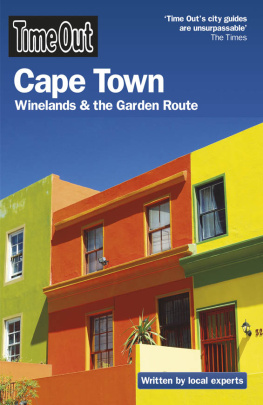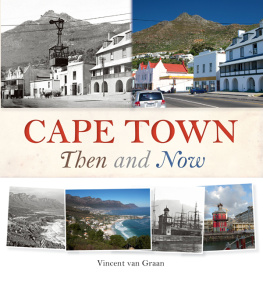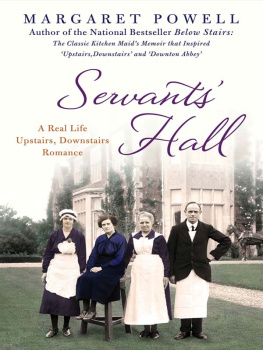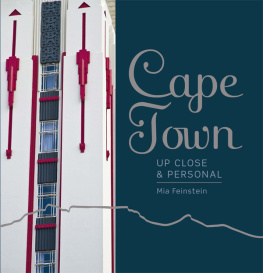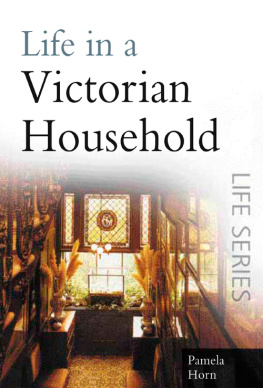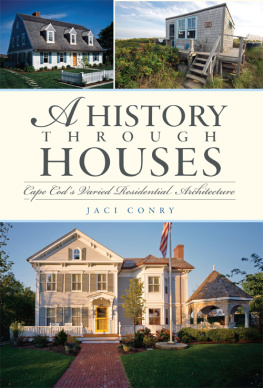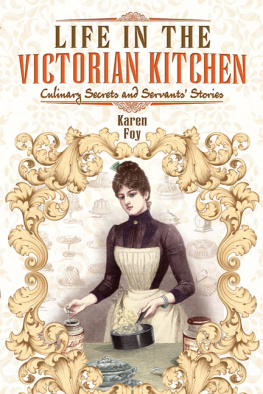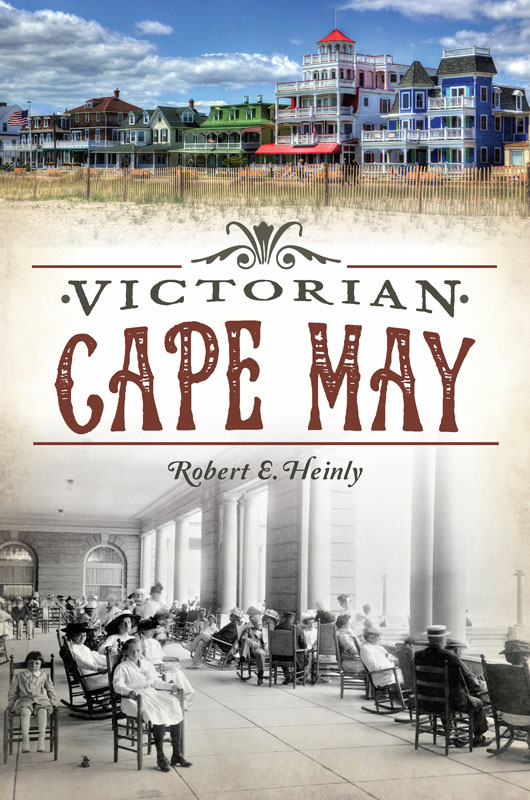

Published by The History Press
Charleston, SC 29403
www.historypress.net
Copyright 2015 by Robert Heinly
All rights reserved
Front cover, top : Courtesy of Bill Trenwith. Bottom : Courtesy of Library of Congress.
First published 2015
e-book edition 2015
ISBN 978.1.62585.424.7
Library of Congress Control Number: 2014959985
print edition ISBN 978.1.62619.895.1
Notice : The information in this book is true and complete to the best of our knowledge. It is offered without guarantee on the part of the author or The History Press. The author and The History Press disclaim all liability in connection with the use of this book.
All rights reserved. No part of this book may be reproduced or transmitted in any form whatsoever without prior written permission from the publisher except in the case of brief quotations embodied in critical articles and reviews.
Over the years, many of my readers have urged me to compile my writings on the Victorian era into a book. This is that book, created as my thanks for your readership, encouragement and support.
Contents
Acknowledgements
I am indebted to the works of many contemporary historians and writers about Cape May and the Victorian era. Among them, I especially want to thank Jim Campbell, Bob Elwell, Jennifer Kopp, Ben Miller and Emil Salvini and Jack Wright, whose work especially inspired and contributed to mine.
I am also grateful to the Cape May Star and Wave and especially former editor Susan Krysiak. She first saw merit in my writings, and the newspaper continues to publish them.
Whitney Tarella Landis and Hilary Parrish of The History Press have been of great help in crafting my writings into this book.
Special thanks to the Mid-Atlantic Center for the Arts and Humanities, the keystone of Cape Mays ongoing historic preservation and Victorian renaissance, for use of its multiple resources.
My biggest thanks go to my wife, Monica, my ever patient and encouraging proofreader and typist, for coping with this technological dinosaur and Luddite.
Introduction
An Insiders Insights into
Victorian Cape May
As a lifelong visitor to Cape May and now a permanent resident of the area who is intimately involved in helping visitors and locals alike learn more about the rich history and heritage of Victorian Cape May, as well as a career historian and educator, Im pleased to offer readers unique insights into that history and heritage.

Dr. Robert E. Heinly as Dr. Emlen Physick. Courtesy of Mid-Atlantic Center .
This book is not only about the rise of Cape May to the Victorian Queen of the Seaside Resorts in the 1800s but also about its decline for much of the 1900s and finally, and happily, its rebirth as a leading tourist and vacationing destination from the 1970s to the present based primarily on a renaissance of its Victorian buildings and culture.
In addition, it offers an insightful guide to both the outside and inside of those more than six hundred structures that were both the key to that renaissance and the reason Cape May is one of the few National Historic Landmark cities in the country.
I hope this book helps my readers develop the same understanding, appreciation and fascination for Cape May that I enjoy.
Part I
Meet the Victorians and Their
Queen of the Seaside Resorts
Perspectives at the Turn of the Century
Whenever we enter a new century, as we did several years ago, we tend to look back with amazement and satisfaction at the old one and forward to the new one with hope and apprehension. The Victorians did so as the twentieth century dawned. This section is written from that perspective. The reader will note many parallels to what moderns experienced in 2000.
The last century was one of unparalleled changechange in how we lived, where we lived and how we made a living. Modern marvels of transportation and communication have shrunk our world. We are now not citizens of a state or region or nation but of the globe. Our modern cities with their huge populations and structures would be held in awe by our ancestors, as they offer comforts and opportunities but also problems and perils our predecessors never dreamed of. New inventions and wondrous technology, the marvels of modern science, have changed our economys basis and, with it, the type of jobs men work at. No, not just men but all of us, because women are working outside the home in unprecedented numbers as physical jobs are replaced with mental and service ones. This same economic change has also brought new prosperity and leisure to all. While the excesses of the super-rich and the plight of the poor continue to be disturbing, most Americans lead lives of physical comfort, material wealth and leisure only fantasized about by their ancestors.
At times one wonders if the new ease of life is a two-edged sword, for Americans seem to lack our traditional physical vitality and fitness. New laborsaving devices have resulted in a less strenuous life at home and at work. Even in our leisure, many of us tend to be less physical. The rise of professional sports seems to be turning us into watchers not doers. The disease of spectatoritis is upon us. Hopefully, the recent emphasis on healthy exercise and activities, such as biking and hiking, will remedy this. Alarmingly, there has been a parallel decline in traditional mores and values. Led by artists and entertainers, advocated by our colleges and promoted by the media, old and new, the traditional civilities are openly flaunted. Beyond a decline in civility, there has been an alarming increase in violence in our society along with an increase in blatant sexuality. Our language has become increasingly vulgar. Many seem to respect nothing and no one. The family itself, long the basic building block of our society, seems in decline. This has had an especially negative effect on our young people. Our political leaders share in the blame for this both in the laws they pass or modify and in the example many set in both their personal and public lives. The scandals of the latter are made perhaps too public by a too probing and sensationalistic press. One wonders about the recent war and the presss influences on it. Did the media unduly influence national opinion concerning the war?
Not that all matters political and governmental have declined. We have had great leaders as well this century and made great strides for democracy both internationally and within the country. Foreign dictatorship and oppression have been overcome and rights extended to more and more Americans, although there is still much work to do. Sadly, too many have been martyred in these efforts, including even presidents. The wars of this century, both popular and unpopular, have been too many and too brutal. Theyve been fought with ferocity and with weaponry so terrible that one worries about the end of civilization as we know it should another occur employing even more modern technology.
In retrospect, changeunprecedented change, ever accelerating change, change affecting every aspect of our liveswas the theme of the last century. Overall, we have met the challenges of change. Our success in the new twentieth century depends upon continuing to do so.


